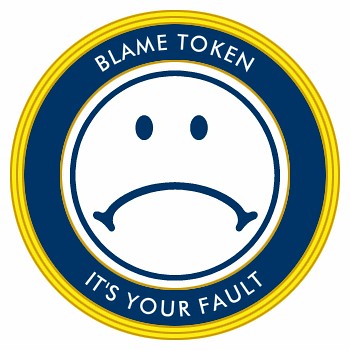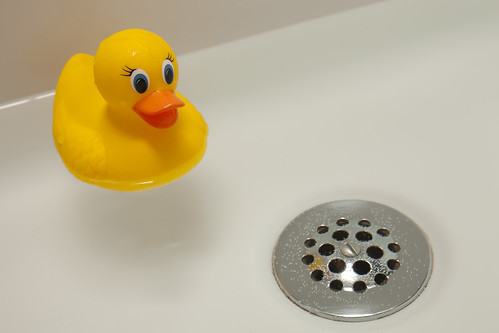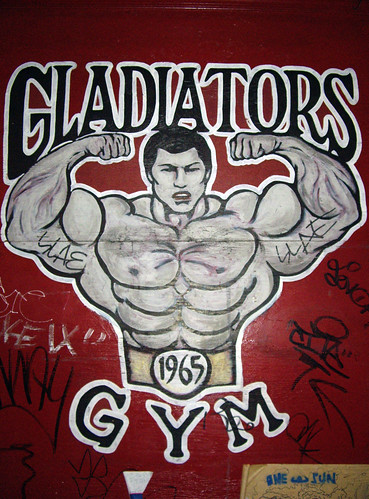Can blaming others make you physically ill?
nstant bitterness can make a person ill, according to Concordia University researchers who have examined the relationship between failure, bitterness and quality of life. "Persistent bitterness may result in global feelings of anger and hostility that, when strong enough, could affect a person's physical health," says Carsten Wrosch, a professor in the Concordia University Department of Psychology and a member of the Centre for Research in Human Development. And: Unlike regret, which is about self-blame and a case of "woulda,…
1 min read
Stuffed Animals Can Prevent You From Getting Sick
tting a stuffed dog has positive effects on the immune system: The present study assessed the effect of petting a dog on secretory immunoglobulin A (IgA) levels. 55 college students were randomly assigned to either an experimental group or one of two control groups. Group 1 (n = 19) petted a live dog; Group 2 (n = 17) petted a stuffed dog, while Group 3 (n = 19) simply sat comfortably on a couch. Each participant was exposed to one of the three…
1 min read
Is it better to settle?
maximizer is someone who researches, comparison shops and works hard to make sure they get the absolute very best. A satisficer is someone who is happy with good enough. Many of us are maximizers about some things and satisficers about others. Which is the better strategy? Maximizing may give better objective results -- but makes us unhappier in the end: Although extant research suggests maximizing is related to objectively positive outcomes (e.g., job offers), I propose maximizing may be…
2 minutes
Can someone wishing you luck really improve your performance?
ctivating a positive superstitious belief can boost people's confidence, which in turn improves performance..." Via HBR Daily Stat citing APA: Activating a positive superstitious belief can boost people's confidence, which in turn improves performance: In an experiment, a dexterity task that normally took more than 5 minutes was accomplished in just 191.5 seconds, on average, if participants were wished good luck before they started it, according to research led by Lysann Damisch of the University of Cologne in Germany. Before trying to roll…
1 min read
Do straight-A students live longer?
a the New York Times: The findings come from the Wisconsin Longitudinal Study, which has been following more than 10,000 people who graduated from Wisconsin high schools in 1957. Those students who finished in the top 25 percent of their high school class were healthier, decades later, than the ones who finished in the bottom quarter. When they were all in their early 60s, those who had finished in the top quartile were, over all, half as likely to have experienced…
1 min read
Can taking a shower make you less moralistic?
eories of moral judgment have long emphasized reasoning and conscious thought while downplaying the role of intuitive and contextual influences. However, recent research has demonstrated that incidental feelings of disgust can influence moral judgments and make them more severe. This study involved two experiments demonstrating that the reverse effect can occur when the notion of physical purity is made salient, thus making moral judgments less severe. After having the cognitive concept of cleanliness activated (Experiment 1) or after physically cleansing…
1 min read
How is it that prayer helps you — even if you’re an atheist?
m not religious, so this is not an attempt to convert anyone. A few months ago I posted from an abstract showing that the act of prayer can be beneficial -- even if you don't believe. Why is that? A new study gives some good insight: Many individuals use prayer to manage negative emotions, but scholars know little about how prayer accomplishes this task. Using in-depth interview data from victims of intimate partner violence, I argue that prayer is an imaginary social support…
1 min read
Is there a way to trick yourself into exercising more?
o studies demonstrated that leading individuals to mentally reframe the time required for an exercise program (e.g., 2 hr per week) in terms of the equivalent daily amount (e.g., 17 min per day) reduced the perceived time commitment and increased people's willingness to try the program. Study 2 also identified a cognitive mechanism that mediated the effect of temporal framing on exercise intentions. Consistent with findings in other domains (Gourville, 1998), reframing exercise duration in daily units led participants to retrieve comparison activities…
1 min read








